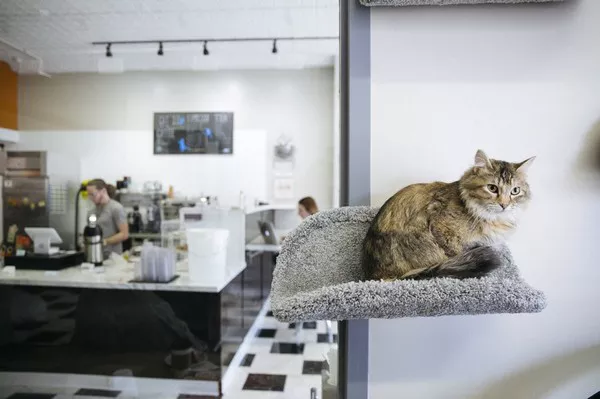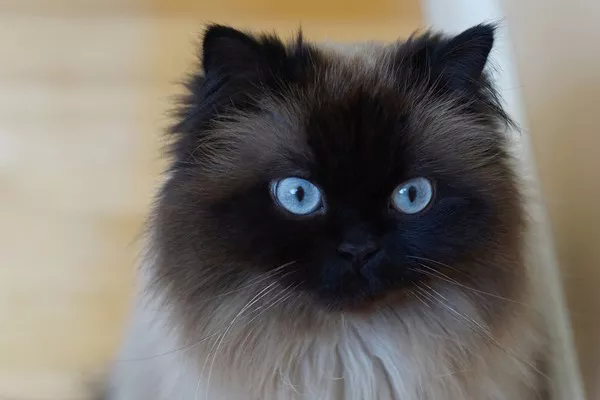Cats have long been cherished companions for their independent spirit, playful demeanor, and affectionate nature. While each cat has its own unique personality, certain cat breeds are renowned for their friendliness and sociability. In this comprehensive guide, we’ll delve into the world of friendly cat breeds, exploring the factors that contribute to their affable nature and highlighting some top picks for those seeking a feline friend known for their warmth and companionship.
Understanding Feline Temperament
Before delving into specific cat breeds, it’s important to understand the factors that contribute to a cat’s temperament and personality:
1. Genetics:
Like humans, cats inherit certain personality traits from their parents. Breeding practices and genetics play a significant role in shaping a cat’s temperament, including their level of sociability and friendliness.
2. Early Socialization:
Early experiences and socialization during kittenhood can have a profound impact on a cat’s behavior and temperament. Cats that are exposed to a variety of people, animals, and environments from a young age are more likely to develop into friendly and sociable adults.
3. Individual Variation:
While certain cat breeds may be predisposed to friendliness, it’s important to remember that individual cats within a breed can vary in temperament. Factors such as upbringing, environment, and life experiences also play a significant role in shaping a cat’s personality.
Traits of Friendly Cat Breeds
When seeking a friendly feline companion, consider the following traits commonly associated with friendly cat breeds:
1. Affectionate Nature:
Friendly cat breeds are known for their affectionate and cuddly nature. They enjoy being close to their human companions, seeking out attention, and showing affection through purring, kneading, and rubbing against their owners.
2. Sociability:
Friendly cat breeds are typically sociable and outgoing, enjoying the company of both humans and other pets. They may greet visitors at the door, engage in interactive play, and thrive in multi-pet households.
3. Playfulness:
Friendly cat breeds often exhibit a playful and energetic demeanor, enjoying interactive toys, games of fetch, and climbing and exploring their environment. Their playful nature makes them ideal companions for families with children or other pets.
Top Picks for the Friendliest Cat Breeds
Now that we’ve explored the traits of friendly cat breeds, let’s take a closer look at some top picks for those seeking a feline companion known for their warmth and affection:
1. Ragdoll:
Ragdolls are beloved for their gentle and affectionate nature, earning them the nickname “puppy cats” for their dog-like loyalty and tendency to follow their owners from room to room. They enjoy being held and cuddled, often going limp in their owner’s arms—a trait that inspired their name.
2. Maine Coon:
Maine Coons are known for their friendly and sociable disposition, making them excellent family pets. They are often described as “gentle giants” due to their large size and affectionate nature. Maine Coons are playful, outgoing, and get along well with children and other pets.
3. Siamese:
Siamese cats are renowned for their outgoing and vocal personalities, often engaging in “conversations” with their owners. They form strong bonds with their human companions and enjoy being involved in household activities. Siamese cats thrive on attention and make devoted companions.
4. Scottish Fold:
Scottish Folds are beloved for their unique folded ears and sweet, affectionate nature. They are known for their calm and easygoing temperament, getting along well with children and other pets. Scottish Folds enjoy lounging in their owner’s lap and are happy to be part of the family.
5. Burmese:
Burmese cats are affectionate, playful, and known for their strong bond with their owners. They enjoy being the center of attention and will often follow their owners around the house. Burmese cats are social creatures that thrive on companionship and make loving family pets.
Conclusion: Finding Your Feline Friend
In conclusion, selecting a friendly cat breed can enhance your life with the warmth, companionship, and affection that these delightful companions bring. Whether you choose a Ragdoll, Maine Coon, Siamese, Scottish Fold, or Burmese, each of these breeds offers its own unique blend of traits that make them beloved family pets.
When welcoming a new cat into your home, remember that individual temperament can vary within breeds, and the most important factor is finding a cat whose personality meshes well with your own lifestyle and preferences. With love, patience, and proper care, your friendly feline companion will become a cherished member of your family for years to come.
FAQs:
1. What is the nicest house cat breed?
Determining the “nicest” house cat breed is subjective and often depends on individual preferences. However, many consider the Ragdoll breed to be exceptionally gentle and affectionate, earning them a reputation as one of the nicest cat breeds. Ragdolls are known for their docile demeanor, love for human companionship, and tendency to go limp when held, hence their name. Their sociable nature and propensity for bonding closely with their owners make them popular choices for families seeking a friendly and amiable feline companion.
2. What’s the laziest cat breed?
When it comes to the laziest cat breed, the British Shorthair often takes the crown. Renowned for their laid-back temperament and penchant for lounging, British Shorthairs are expert nappers who enjoy a leisurely lifestyle. While they may engage in play sessions from time to time, they are generally content to spend their days relaxing in cozy spots around the house. Their calm and undemanding nature makes them ideal companions for individuals seeking a low-energy pet that thrives in a relaxed environment.
3. What is the weakest big cat?
Among the big cat species, the clouded leopard (Neofelis nebulosa) is often considered one of the weakest in terms of physical strength relative to its size. Despite its stunning appearance and impressive climbing abilities, the clouded leopard possesses a relatively slight build compared to other big cats like lions or tigers. Its slender frame and shorter limbs contribute to its agility in navigating treetops but may result in less raw power compared to its larger counterparts. Nonetheless, the clouded leopard is a formidable predator within its forest habitat, relying on stealth and ambush tactics to capture prey.


























